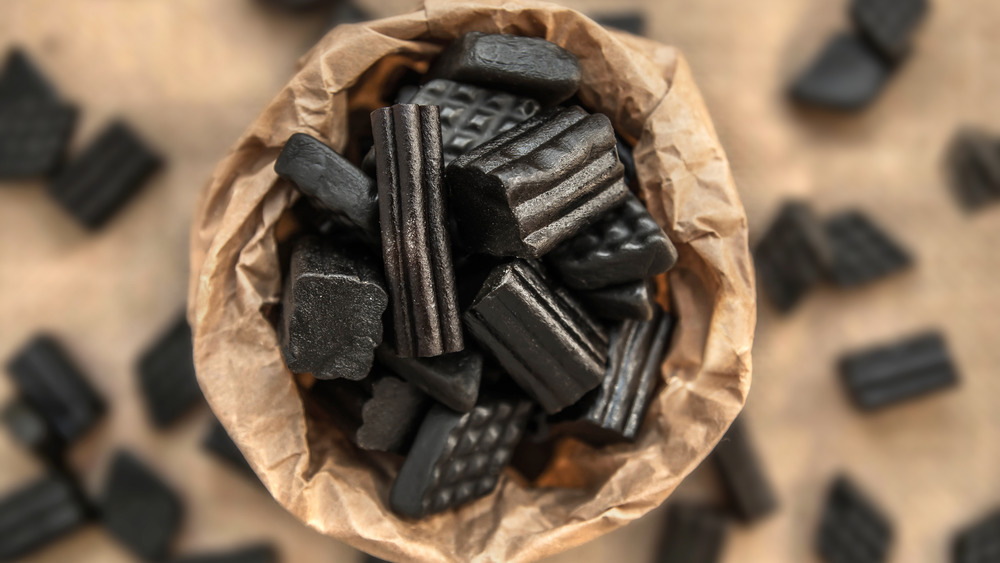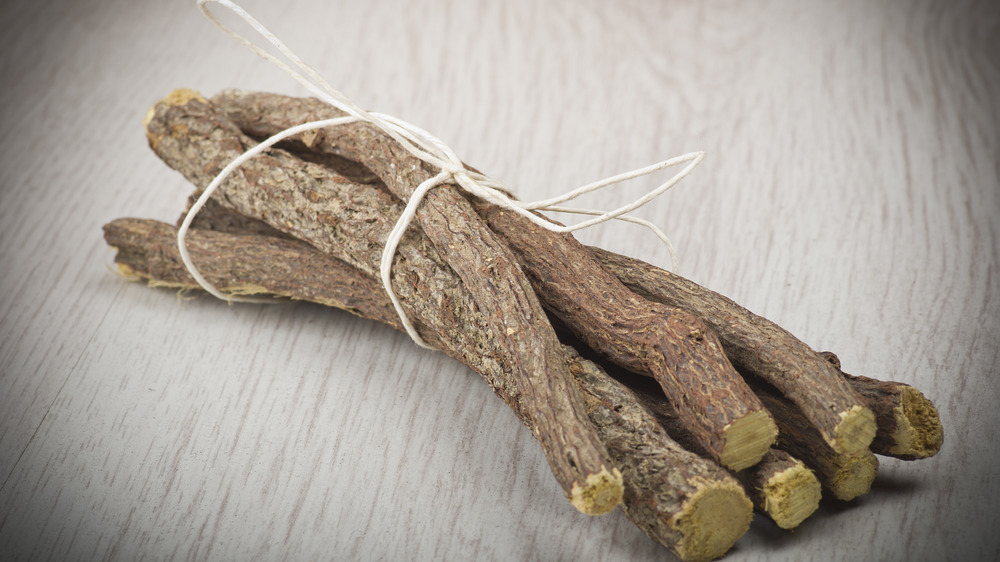Why Eating Black Licorice Is Riskier Than You Think
There are few sweets that draw lines in the sand as deep as black licorice. It seems as if folks either love or hate its distinct taste. If you can't stand it, then it might be interesting to add to your list of reasons on why the bowl of black licorice should stay on the opposite side of the room. If you're a lover of this sweet, black licorice, read on to find out why black licorice is riskier than you think.
The obvious reason is, well, pretty obvious. Black licorice is a candy and filled with sugar. But it goes beyond sounding the 'loads of sugar' alarm. According to Health, the Food and Drug Administration (FDA) has issued a warning claiming adults over 40 are at a higher risk for an irregular heartbeat rhythm when consuming 2 ounces of black licorice every day for up to two weeks. And in 2016, Linda Katz, M.D., M.P.H. reported to the FDA that a person who really enjoyed black licorice experienced a problem after eating it. And in addition, numerous medical journals have found a link between black licorice and health issues in adults over 40.
Health related issues and licorice intake have been monitored for years
This FDA warning may be making headlines now, but there have been undercurrents of worry for years. One medical journal, Endocrinology and Metabolism, published a review in 2012 stating "a warning message that should be transmitted from physicians to patients to avoid excessive licorice intake as well as a message to the FDA to start regulating the use of this substance," reports Health.
This all sounds like it's worth limiting our black licorice stash, but how exactly is it harmful? According to the FDA, a sweet compound found in licorice root, glycyrrhizin, has shown to temporarily plummet potassium levels, which may be an instigator to abnormal heart rhythms — and sometimes in extreme cases, heart failure.
If you think you are in the clear since you can't stand the stuff, then think again. Health states that licorice root is commonly used as a flavoring agent in soft drinks (like root beer), teas, and other products. So whatever it is that you enjoy eating or drinking, we hope it's done in moderation, and that you have dutifully scanned the ingredients list on the back.


